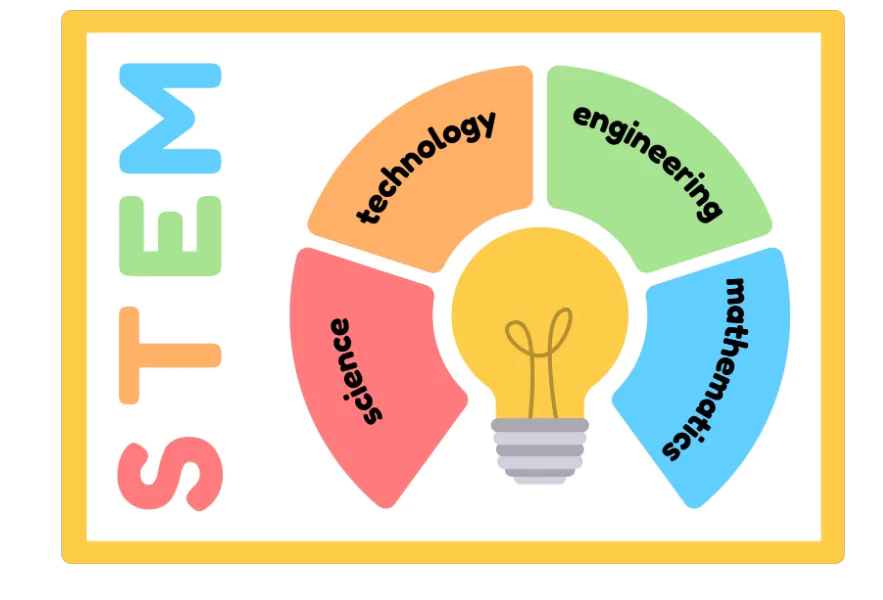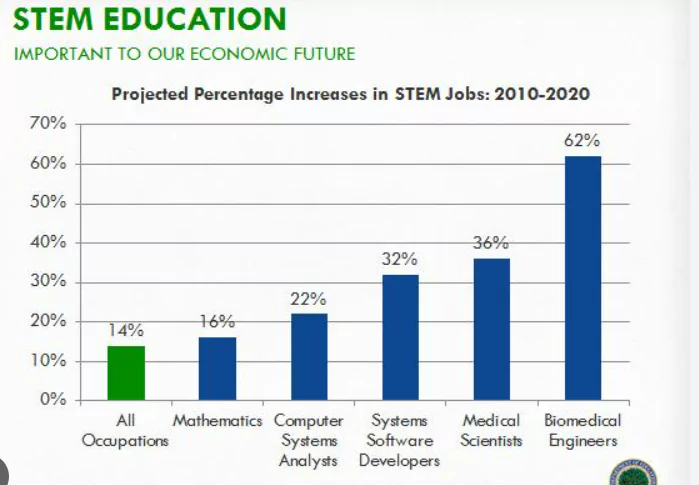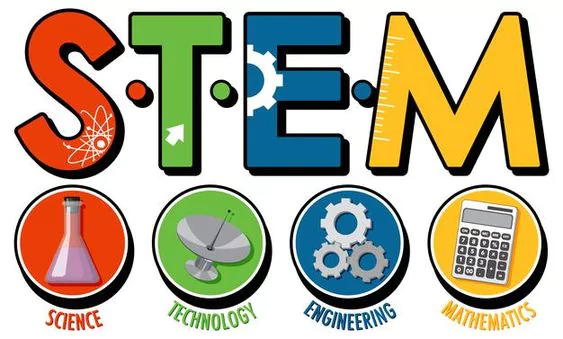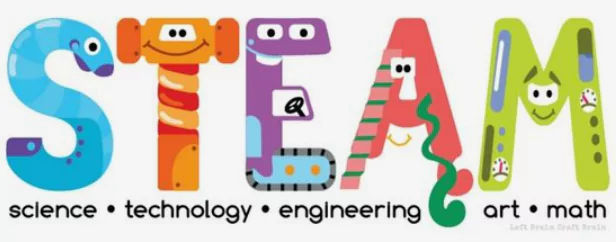

Artificial Intelligence (AI), the digital era’s transformational technology, has made a significant impact on our lives. It can be found in our kitchens, bathrooms, offices, hotels, hospitals, and schools.
There is no denying AI is the biggest next thing in STEM (Science, Technology, Engineering, and Mathematics) education because it has the potential to transform the way we teach and learn STEM subjects. AI helps educators in creating personalized learning experiences, real-time feedback to students, and automated grading and assessment.

In terms of education, it has become an essential component of the STEM curriculum to ensure students learn AI skills and are prepared to face future workplace challenges where AI-related jobs will replace current ones. Overall, AI has the potential to revolutionize STEM education and prepare students for the jobs of the future.
Advantages of STEM education

Currently, STEM education is increasing in popularity. Many schools have come forward to implement STEM learning into their curriculum to develop skillful and knowledgeable students. Here are other benefits of STEM education.
- STEM pairs with creativity and ingenuity that lead to new innovations and ideas. It helps the students learn the importance of digital skills and find a way to boost their knowledge. By learning technologies, they will bring their creativity into reality.
- Students learn in a safe environment during STEM education activities. The experience of falling and trying again increases persistence and problem-solving. It helps to learn to cope with the stress of failure and find the right way to achieve the goal. Additionally, it enables the students to find and embrace mistakes as a vital part of the learning process while building resilience and confidence to confront challenges.
- It teaches students to work together in teams to find a better solution to every problem. The opportunity to work in a team environment will help them adapt to any workspace easily in the future. In addition, they learn to record data, render presentations, and write reports as a team.
- STEM education teaches skills that students can utilize in the real world. It makes them explore their knowledge and achieve many things easily. It also teaches the power of innovation and technology. And gives them the confidence to embrace new technologies without any fear or hesitation. It makes them stand out of the crowd.
STEM education is already offering many benefits for students. Imagine its impact when it is combined with artificial intelligence. It will surely surprise you at every step and makes the future generation more knowledgeable and skillful. Keep reading to know more about AI in STEM education.
How is AI technology in STEM education beneficial?

- AI in STEM brings unlimited benefits to students and teachers. It helps every student get their own pace to learn things. It means students can learn different concepts and focus on their areas of interest.
- It also eliminates the hassles of engaging with the traditional fit-for-all-all system. The traditional learning system schools are not suitable for every student because some are introverts and hesitate to ask their doubts. For them, AI is highly beneficial as it provides personalized tutoring. It helps all students learn concepts as per their ability and enhances their skills greatly.
- Technology is a boon to humankind, but it depends on how people access technology. Proper implementation of AI helps students learn hard concepts with the help of audio and visual data easily. So, they try to work on the concepts they learn and discover many new things.
- AI in STEM will make education available anywhere. It means students at the back of beyond can access knowledge without visiting the school. It is highly beneficial for rural students who can enjoy international standards of learning from the remotest areas.
- From teachers’ perspective, AI in STEM helps improve their performance. AI will help them access the student’s emotional state clearly and motivate them to learn things easily. It also assists teachers in finding errors in several areas and fixing them quickly.
Recommended Reading:
Reasons to explore Artificial Intelligence
AI is changing the world tremendously. Exploring this field will lead to excellent and world-changing passion projects. It can help teens connect with their other interests effectively and set their careers on the right path. Understanding today’s tech and creating tomorrow’s tech is important, and AI can help students understand the concept and work on it efficiently. Additionally, it unlocks a world of possibilities and helps teens innovate with new technologies. Simply put, AI motivates students to understand the latest trends and build important digital skills.
Artificial intelligence also brings a wide range of STEM fields better together. It allows teens to obtain skills across various disciplines and shine. It also enhances their problem-solving skills and teamwork, and as a result, they can work in any kind of environment.
Nowadays, many job and educational opportunities exist, but people are unable to take advantage of them due to a lack of technical knowledge. So, this new trend will equip children to deal with such challenges.
Moonpreneur is on a mission to disrupt traditional education and future-proof the next generation with holistic learning solutions. Its Innovator Program is building tomorrow’s workforce by training students in AI/ML, Robotics, Coding, IoT, and Apps, enabling entrepreneurship through experiential learning.
Update: This article was last updated on 29th November 2023 to reflect the accuracy and up-to-date information on the page.

























Useful post to know the importance of AI
Can AI bridge educational gaps and make STEM more accessible globally?
Yes, AI can personalize learning, offer resources, and adapt to diverse needs, making STEM education more accessible worldwide.
What role does AI play in shaping the future of scientific research and discoveries?
AI accelerates data analysis, aids hypothesis testing, and innovates problem-solving, revolutionizing scientific research and discovery processes globally.